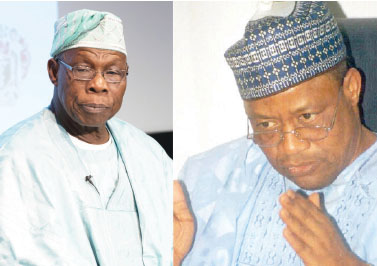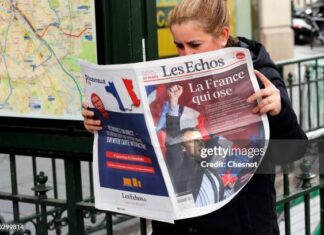By Chido Onumah
In a country where the value of human life is not worth more than that of a fly at a butcher’s shop; where misery is a constant companion and the candour of our politicians and rulers is the same candour that pimps extend to prostitutes, it is not out of place to celebrate every minute, every hour, every month and every year. It is certainly not for nothing that “Happy new month” has become a refrain at the beginning of every month for many Nigerians on WhatsApp, Twitter and Facebook. But I digress!
I was born on April 10, 1966 in a country that, by all indications, had the prospects of being the leader of the Black race. This is my story and in a way the story of Nigeria. The year of my birth, six years after Independence, was the year of the first of many military coups, a bloody event – touted by those who engineered it as an attempt to redeem the country – that would spiral out of control and precipitate an internecine civil war.
Memories of that turbulent period still reverberate across the country. Fifty years after, Nigeria remains a dream deferred. And that dream is drying up like a raisin in the sun, to paraphrase Langston Hughes. If we were happy to gain Independence in 1960, we failed woefully to build a nation out of what was handed to us by the departing colonialists. If we had three countries, as ex-President Olusegun Obasanjo alluded to on January 15, 2016, at an event to mark the 50th anniversary of the 1966 coup and the 46th anniversary of the end of the civil war on January 15, 1970, we took it for granted such that today we can’t keep count of the number of “countries” that are tugging at the heart and soul of Nigeria.
It is ironic that the older the country gets the more challenging it is for her people to live in peace and harmony. I remember the Nigeria I grew up in with nostalgia and I wonder always what happened to that country. It was the era of oil boom and the “Cement Armada”, when the problem of the country was not money but what to do with it, as the then Head of State, Gen. Yakubu Gowon, was reported to have said. Maybe the prosperity soothed our differences. Whatever the reasons, the Nigeria I grew up in, the country of my childhood, was one in which the concept of Nigeria was all-embracing; it was one that our rulers should have taken a cue from, but they were too busy sharing and pocketing the money because, “their nation”, in the eternal words of radical economist, the late Prof. Eskor Toyo, “is a well of mineral oil and money from the territory called Nigeria.” Building a Nigerian nation was the last thing on their mind!
Growing up in different parts of Lagos, among kids and friends from other parts of Nigeria, street football and table tennis were the rallying points. Nigerian Pidgin English was the lingua franca. And it was spoken with relish. It was a “crime” to speak your ethnic language, even to your siblings, in the midst of friends. For many – like Nathaniel, the football star with a perpetual runny nose – without an ethnic name, nobody guessed or cared to know where they came from. It just didn’t matter. I remember, in the midst of a “set”, the three- or four-a-side football game that was the staple of many streets in Lagos, our Muslim compatriots, Mohammed and his brother, Aminu, would occasionally excuse themselves and go say their prayers and we would stop the game for them to return or defer their “set” until they returned, depending on the number of people available.
Then, gradually things began to change. Because there was nothing to aspire to, the post-civil war generation went the way of their forebears. I remember a discussion I had many years ago with a Ghanaian friend of mine, a lawyer, in London. Every time we meet is an opportunity to dissect the shenanigans of Nigerian and Ghanaian politicians, among the vilest of that species of humans.
On this occasion, my friend wondered what the future held for Nigeria considering the way we treat one another. During a visit to Nigeria, he was stranded at the Murtala Mohammed International Airport (MMIA) in Lagos. In the midst of the confusion, he saw a uniformed officer who was beseeched by Nigerians seeking help. He noticed the name on the officer’s nametag and asked a question seeking clarification in the language he thought the officer would understand based on his name. To his surprise, the officer abandoned the Nigerians he was attending to and took my Ghanaian friend away to solve his problem.
I have recounted this story to explain just one aspect of the Nigerian tragedy. I am sure many Nigerians have similar experiences to share. What does Nigeria really mean to Nigerians? We treat foreigners better than we treat our countrymen and women because they share our faith or we speak their language. If you go to many government agencies and academic institutions in Nigeria, the lingua franca is usually the language of the head of the agency or institution; and those who do not understand or speak that language soon discover that they are “foreigners” in their own country. How can we build a nation when we look at one another with suspicion and we don’t put Nigeria first?
It is difficult to make sense of Nigeria. Every now and again, I come across Nigerians, some well-educated, who would ask in righteous indignation: “How come your children all have Yoruba names?” As if Yoruba were some strange and distant part of the world. My standard answer is usually, “Oh, my spouse is Yoruba.” And the response? “That is not an excuse. Where do you come from?” For those I think can swallow it, my answer, an answer which I am sure will make comedians, Ali Baba, AY, Basketmouth and Klint da Drunk, go green is: “I came from my mother. And I have never been back there.”
As part of nation-building, perhaps government could incentivise young Nigerians who marry outside their geo-political zone or ethnic stock. As a people, we must develop a national ethos, something that binds us and which we all aspire to. For example, we could launch a national name project encouraging parents to give their children at least one name from another ethnic group. In another 20 years, we may not be able to tell who comes from where.
On this occasion, in this sometimes tortuous journey in which I found God, socialism and love, I remember my family, teachers, mentors, friends and colleagues. I definitely would want to encounter you all if I were to live this life all over again. You have impacted and enriched my life beyond measure. Some have challenged me; others have supported me in unimaginable ways; yet, others have tolerated my “troubles” and importunity with equanimity.
I was 17, fresh out of high school and enjoying the freedom that came with the transition from high school to university. My dad, always wanting new experience for me, had asked me to go spend my holiday with my uncles and cousins in Owerri, Imo State. Such visits also afforded me the opportunity to see my maternal grandmother, Janet Ijeoma Durunna. She was the only one, out of my four possible grandparents, that I met. She was a beautiful and lovely old woman who enjoyed telling us, her grandchildren, stories and emphasising the moral of each story.
I had hardly arrived Owerri when I came down with severe stomach pain. My aunty took me to her family clinic where the doctor diagnosed appendicitis. He said I had to be operated upon immediately, except that I also had malaria. That meant I had to be treated for malaria before the surgery. That gave my mum, who didn’t want me to travel in the first place, enough time to come to Owerri before the surgery. I had never seen my mum so shaken when she saw me. It was perhaps the first time I remember being hospitalised. The clinic wasn’t busy; so my mum would spend time way beyond the visiting hours preparing me psychologically for my surgery.
The surgery went well. Then one day, while I was recuperating, something bizarre happened. That evening, some youth, mostly traders from the main market in the centre of Owerri, were brought to the clinic with various degrees of injuries. I would later know that the cause of their injuries was the noise that roused me from sleep a few hours before their arrival. This incident took place a few weeks to one of the most contentious elections in Nigeria’s history, the 1983 general elections, that would be won or stolen (depending on who you asked) by the notorious National Party of Nigeria (NPN), the precursor of the Peoples Democratic Party (PDP).
With that at the back of my mind, when I heard that noise, I feared it was a clash of political thugs. But I was wrong. When I looked through the window in my room, I saw a helicopter hovering in the sky and tiny pieces of paper raining down; and hundreds, perhaps thousands, of people following the helicopter and running in different directions trying to grab as many of the falling papers as they could. As I would learn later, the magnanimous occupant of the helicopter was no other than the controversial politician, Francis Arthur Nzeribe, who was running for a seat as a senator. That was his own way of campaigning – showering his constituents with naira. Nzeribe would emerge on the national scene a decade later in 1993 as a foot soldier of Gen. Ibrahim Babangida, the self-proclaimed evil genius, and one of the leaders of the Association for Better a Nigeria (ABN), the amorphous organisation that played an important role in the infamous annulment of the June 12, 1993 presidential election won by Moshood K.O. Abiola.
Two weeks after I was first hospitalised, I was discharged with the instruction not to do any heavy lifting and to come back a few days later to assess the healing process. That was the beginning of my trouble with my mum. Two days after I returned home, my cousins who had not seen me in years, and wanting to impress me, persuaded me to join them to watch a match at a local football competition. I decided to accompany them without worrying about what my mum would say, partly because I assumed we would be back before dusk. I wasn’t familiar with the terrain and didn’t know how far our destination was. And there were no cell phones those days to call or text that I was safe. By the time we trekked the almost five kilometres back, it was pitch-dark and my mum had gone in search of me.
(To be continued)
• Onumah, an author, is Coordinator of the African Centre for Media & Information Literacy (AFRICMIL).













